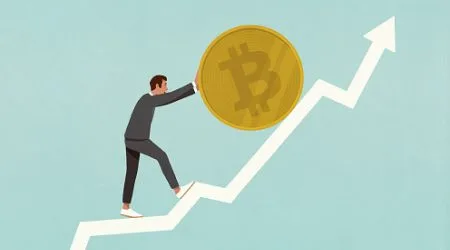
How high can Bitcoin actually go?
If the next Bitcoin bull run is about to start, what price can we realistically expect Bitcoin to reach?
Read more…
If the next Bitcoin bull run is about to start, what price can we realistically expect Bitcoin to reach?
Read more…
Volatility is back on the menu with the Bitcoin halving now less than a week away.
Read more…Crypto airdrops let you receive crypto tokens in return for completing certain activities.
Track the daily and overall performance of the spot Bitcoin ETFs.
Compare the top AI cryptocurrency based on overall market capitalisation and volume.
Bitcoin halvings usually precede a dramatic increase in Bitcoin’s price.
What to do if you've been affected by Binance's changes to AUD deposits and withdrawals.
Crypto can be a good investment, but it’s also a risky one.
Learn how to get started investing in cryptocurrency, the methods available to you, and what to keep in mind before making your first purchase.
Discover blockchain: what it is, how it works and who is exploring it in Australia.
A comprehensive overview of cryptocurrency stablecoins, including how they work, what they’re used for and why they’re important.
Crypto Finder is launching its first-ever blockchain hackathon, FREE and open to all coders and blockchain enthusiasts!